MercoPress. South Atlantic News Agency
Argentina
-
Monday, December 3rd 2018 - 08:36 UTC
IDB US$ 130m loan to modernize Argentine-Uruguayan bi-national Salto Grande dam and power plant
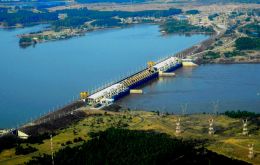
The Inter-American Development Bank (IDB) has approved two financing packages worth a total of US$ 130 million in support of a program to modernize the Argentine-Uruguayan bi-national hydroelectric power plant in Salto Grande and a program to boost the competitiveness of the productive and tourism sectors of that region, made up of the departments of Concordia and Federacion in the Argentine province of Entre Ríos and Salto department in Uruguay.
-
Monday, December 3rd 2018 - 07:48 UTC
President Xi on official visit to Argentina signs 30 agriculture and investment deals

China's president on Sunday signed new trade deals with Argentina as the Asian giant expands its growing role in Latin American economies. Presidents Mauricio Macri of Argentina and Xi Jinping of China announced the more than 30 agriculture and investment deals during a state visit following the Group of 20 summit of leaders in Buenos Aires.
-
Monday, December 3rd 2018 - 07:46 UTC
G20 Buenos Aires declaration calls for reforms to world trade system; US skips climate change chapter
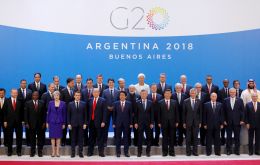
In a joint declaration, the leaders of G20 nations on Saturday agreed to build consensus for fair and sustainable development through an agenda that is “people-centered, inclusive and forward-looking”.
-
Monday, December 3rd 2018 - 06:42 UTC
China boosts Argentina's foreign reserves with a US$ 9 billion currency swap
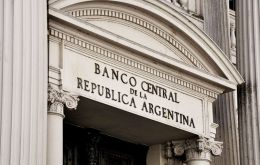
China and Argentina signed a US$ 9 billion currency swap agreement to boost the South American country’s foreign currency reserves, its central bank announced on Sunday.
-
Monday, December 3rd 2018 - 06:34 UTC
UN chief welcomes G20 commitment to fight climate change
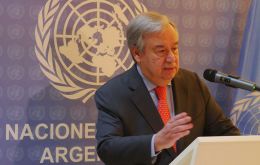
UN Secretary-General, António Guterres, has welcomed the declaration released on Saturday at the conclusion of the 2018 G20 meeting of the world’s leading economies, in Buenos Aires, Argentina, which reaffirms a commitment to raise ambition in the fight against climate change.
-
Sunday, December 2nd 2018 - 21:17 UTC
Xi Jinping furthers China's involvement with Argentina during meeting with Macri
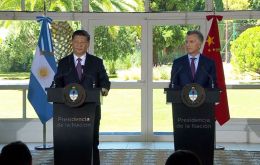
Presidents Mauricio Macri of Argentina and Xi Jinping of China Sunday met in a post-G20 encounter at the former's residence in the outskirts of Buenos Aires to further develop the relations between their two countries.
-
Sunday, December 2nd 2018 - 14:51 UTC
May highlights warm welcome in BA - “important milestone in relationship between UK, Argentina”
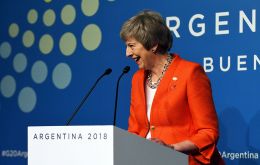
Theresa May Saturday voiced her satisfaction for the welcome she received as the first serving British Prime Minister ever to visit Argentina after the 1982 Falklands War and she congratulated President Mauricio Macri for an outstanding G-20 Summit in a farewell message that went viral on both social and conventional media.
-
Sunday, December 2nd 2018 - 01:40 UTC
UN Remarks to G20 session on Climate and Sustainable Development

In order to accomplish the 2030 Sustainable Development agenda, United Nations consider the big trouble in relation to climate change the world is suffering. UN Secretary General Antonio Guterres remarks to G20 session on Climate and Sustainable Development as an advice on the “greatest threat to human security and sustainable development and that climate change is still running faster than we are”.
-
Saturday, December 1st 2018 - 22:44 UTC
Mexico, US, Canada sign Buenos Aires treaty to replace NAFTA

The presidents of the United States and of Mexico and Canada's Prime Minister signed Friday in Buenos Aires the new North American trade agreement, known as the United States-Mexico-Canada Agreement (USMCA), which is to replace the NAFTA one.
-
Saturday, December 1st 2018 - 08:56 UTC
Russia and Argentina sign fisheries conservation cooperation accord
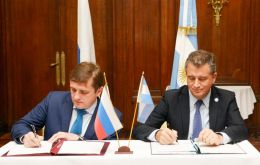
Argentina and Russia signed on Friday a fisheries and aquaculture cooperation agreement including elaboration of projects for the conservation and sustainable management of resources, as well certifying export fishing plants.
